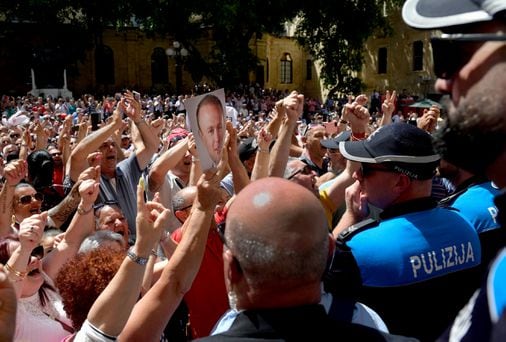The Boston-born, national health care system is at the eye of this storm, a major player in the seismic scandal that has paralyzed this island nationâs government, ensnared federal officials, and jeopardized the countryâs public health care system.
Harvard-educated physician Armin Ernst, a Brookline resident and head of Stewardâs international venture, as well as Stewardâs chief executive, Ralph de la Torre, a longtime Boston health care powerbroker, are each accused by Maltese federal prosecutors of participating in a bribery scheme, diverting millions to âconsultancy feesâ instead of using the funds to improve Maltese hospitals.
Ralph de la Torre (left), the founder and chief executive of Steward Health Care, shook hands with an employee of one of Malta’s public hospitals as Armin Ernst, the CEO of Steward Health Care International, looked on in April 2018. Department of Information Malta/Jeremy Wonnacott
In the United States, Steward faces an existential crisis, mired in a high-profile bankruptcy case, numerous state and federal investigations, and a corporate meltdown thatâs put all eight of its Massachusetts hospitals at risk.
In Malta, a reckoning is already underway. The Steward name became notorious here after the firm failed to live up to a 4 billion euro government contract to manage three of the nationâs hospitals.
Last month, a Maltese magistrate concluded a four-year criminal investigation into the controversial deal. In her 1,200-page report, the magistrate recommended Ernst and de la Torre be charged with money laundering, criminal association, and corruption of public officials, including the nationâs former prime minister, Joseph Muscat. The Steward executives have so far not been charged.
In an interview with the Globe, Muscat proclaimed his innocence, denounced the government investigation, and cast the lionâs share of blame on Steward officials. âThey did not deliver,â he said.
The magistrateâs criminal inquiry describes a Steward culture where cash is king and health care a secondary concern. It alleges Steward executives â namely de la Torre and Ernst â leaned on a cast of shadowy consultants to secure the hospital deal and shuffled millions of dollars of taxpayer funds through secretive channels and into the pockets of Muscat, as well as other politicians and businessmen. Altogether, Steward is mentioned more than 1,700 times in the lengthy court document, which draws on physical evidence and an examination of data on Steward Maltaâs computer servers through September 2021.
Former prime minister Joseph Muscat made his way into court in Valletta, Malta, on May 28. Matthew Mirabelli
âThe emails confirm that top ranking officers within Steward were aware that the payments were being made for political purposes rather than consulting services,â Maltese investigators wrote, citing correspondence seized from Stewardâs servers.
A tranche of other emails sent by Armin Ernst to his associates â obtained by the global journalism outlet Organized Crime and Corruption Reporting Project, and shared with the Times of Malta and The Boston Globe â appear to corroborate several of the inquiryâs findings and debunk claims by Steward that the deal and payments were legitimate. The leaked Ernst emails show questionable accounting practices, little corporate attention to due diligence, and executives cutting corners on an aggressive path to profit.
Altogether, the material suggests Stewardâs domestic operations are not as divorced from its international venture as the company has repeatedly claimed. It also provides a critical window into the business practices of the third-largest hospital system in Massachusetts â one of the biggest for-profit systems in the US â as well as the leadership of de la Torre, a charismatic local cardiac surgeon whose grand ambition led to the rise of the Steward chain.
It is unclear if Ernst, who still lives in Brookline, or de la Torre, who relocated to Dallas along with Stewardâs headquarters in 2018, will appear in court in Malta. Under Maltese law, defendants cannot be charged in absentia, but the United States does have an extradition treaty with the island nation. To be triggered, Maltese authorities would need to present the Department of Justice with evidence compelling enough to issue a warrant.
De la Torre declined to comment through a Steward Health Care Systems spokesperson.
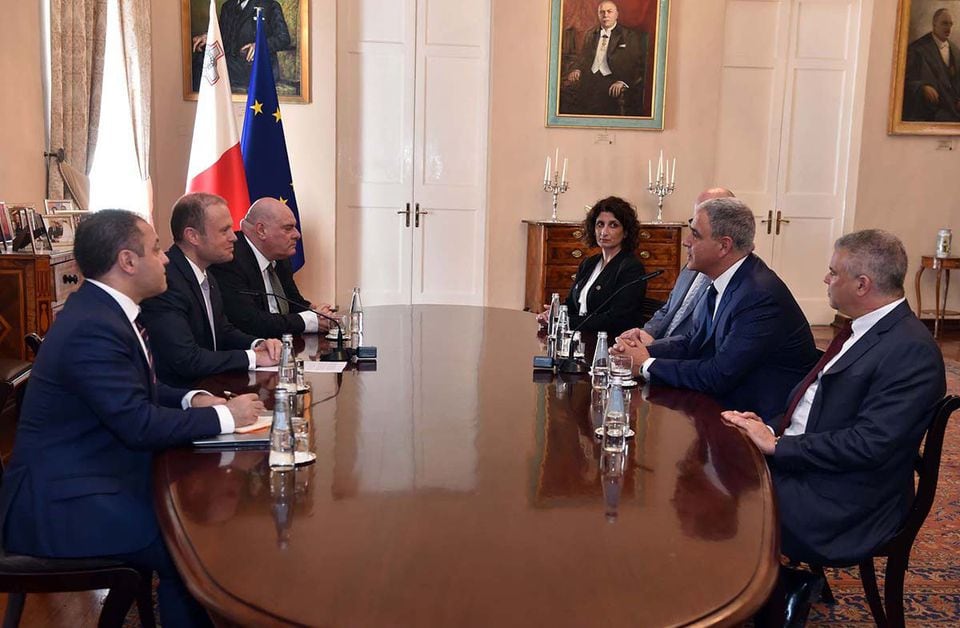 Ralph de la Torre (center, right) met with then-Prime Minister Joseph Muscat of Malta (center, left) during a visit to the island nation in April 2018.Department of Information Malta/Jeremy Wonnacott
Ralph de la Torre (center, right) met with then-Prime Minister Joseph Muscat of Malta (center, left) during a visit to the island nation in April 2018.Department of Information Malta/Jeremy Wonnacott
Ernst declined to comment on the contents of his emails, but a representative from a public relations firm representing Steward International said, âSteward International entered Malta in good faith and has been consistently transparent and focused on providing maximum value to patients and taxpayers. We categorically deny any accusations of wrongdoing and will vigorously defend ourselves. During the course of the four-year inquiry in Malta , we have never been asked to provide any information in any form. A simple request during that period should have been considered and would have allowed for an objective and reliable investigation. We look forward to setting the record straight.â
The State Department, which monitors overseas business activity by US firms, referred the Globe to the US Embassy in Malta, which said, âAs a general matter, we do not comment on ongoing law enforcement matters.â Both the US Securities and Exchange Commission and Department of Justice declined to comment.
Before his work for Steward in Malta, Armin Ernst was a widely admired Tufts University School of Medicine professor. The German national first landed in Boston for a post-residency fellowship at Beth Israel Deaconess Medical Center and rose through the ranks as a thoracic surgeon, authoring more than 200 medical publications and editing seven textbooks, according to his professional biography.
He married a local doctor and purchased a seven-bedroom home in Brookline, records show. And in September 2010, he joined fledgling Steward Health Care, led by fellow Beth Israel alumnus Ralph de la Torre.
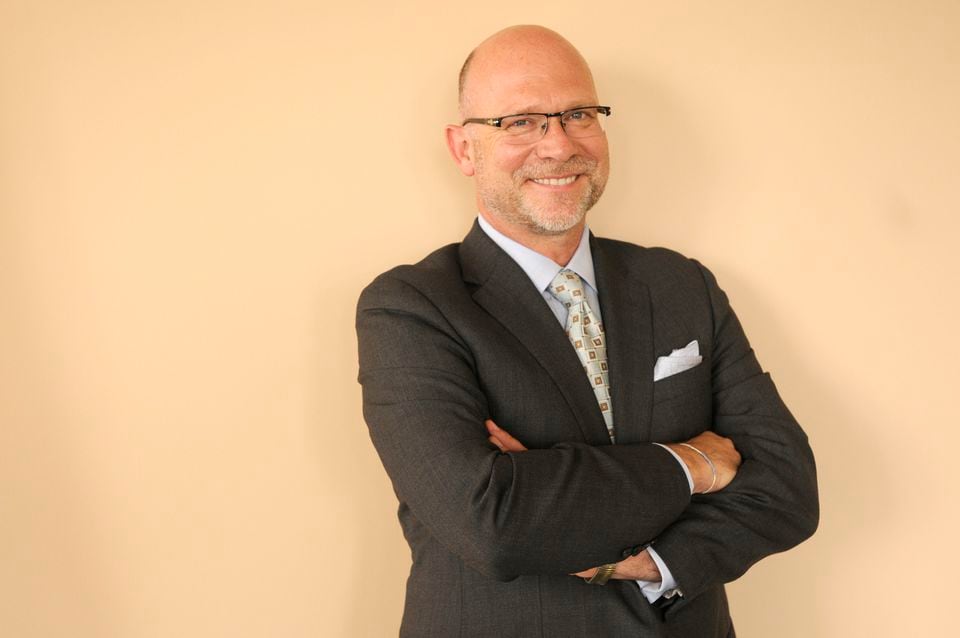 Armin Ernst Tom Rettig/Worcester Telegram & Gazette
Armin Ernst Tom Rettig/Worcester Telegram & Gazette
De la Torre trumpeted the new network as an accessible low-cost alternative to Bostonâs pricey medical goliaths. Already considered one of the most talented cardiac surgeons in the city, he would soon become the face of private equity financed health care.
Ernst saw Steward rise from a small local chain into a national empire. Then he jumped ship for an overseas opportunity as chief executive of an emerging European health care group, Vitals Global Healthcare, a press release shows.
That career move brought Malta into his sights. Just months earlier, the government of Malta had awarded Vitals a 30-year, $4.35 billion private-public hospital contract. Many considered it a surprising partner. Despite the companyâs name, Vitals leaders had no background in hospital management, but were tasked with operating and renovating three of the nationâs eight public hospitals.
When Ernst joined Vitals in July 2016, the company was â at least on paper â in the second month of executing the government contract, receiving roughly 188,000 euros a day to manage 712 hospital beds. But the months dragged on and it became clear to Maltese officials that Vitals could not, or would not, deliver on its end of the deal. Ernst left the company less than a year after joining it.
But he did not leave Malta. Instead, he reconnected with his old boss. De la Torre and Ernst eyed this Mediterranean archipelago as the first stop in Stewardâs aggressive campaign to expand internationally.
Emails quoted in the Maltese criminal inquiry describe Ernst working with de la Torre to orchestrate Stewardâs takeover of the hospital contract as early as January 2017.
That year, Steward Health Care International Ltd. was incorporated with Ernst listed as CEO, according to the Maltese business registry, and with de la Torre as the owner through an American entity called Steward Health Care International LLC. The company, records show, shared the same Boston office as Steward Health Care Systems.
In short order, the government of Malta transferred the hospital deal to Steward, along with a stipulation that if the contract was ever annulled by the courts, the company would receive a 100 million euro payout. The ownership exchange was so swift that Steward could not complete any of the due diligence typically done when closing such a mammoth deal.
âJust to clarify Steward/my position we gave up the due diligence for a variety of reasons, one it being the pressing timeline,â Ernst wrote in an email at the time. âBut that means we are not pursuing ANY pre-purchase [due diligence].â
It was an unorthodox admission for a deal that leveraged such a swath of the islandâs capital. Two employees of the US Embassy told the Globe that Steward did not reach out about the deal.
âAmerican companies would typically come to us and ask for advice or opinions when theyâre getting ready to do a big investment in Malta,â said then-Ambassador G. Kathleen Hill.
Hill said she met de la Torre only once, at a soiree in his honor in Malta during the summer of 2018.
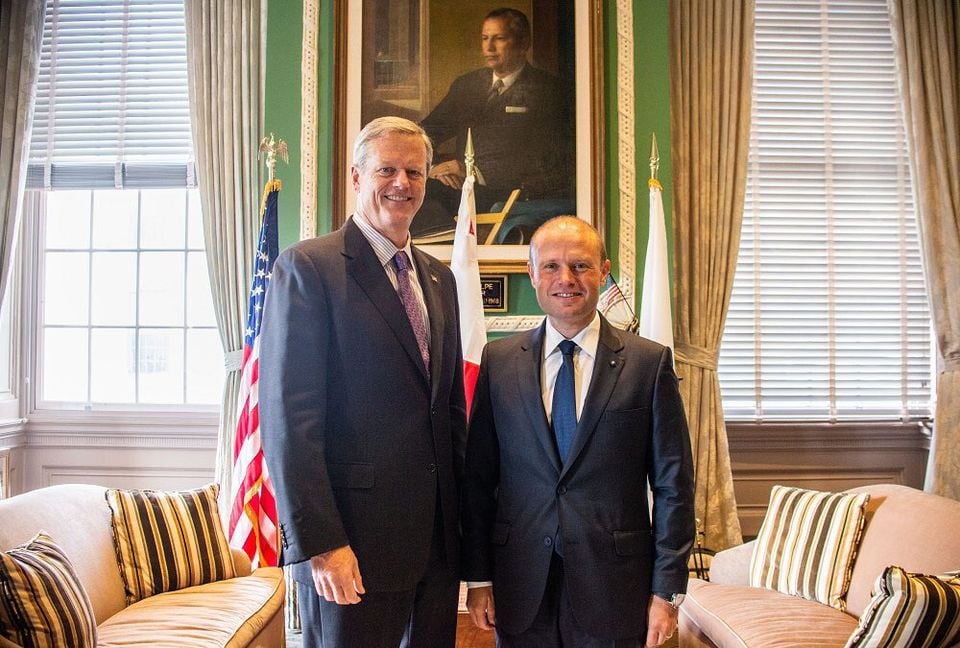 Prime Minister Joseph Muscat of Malta met with Massachusetts Governor Charles Baker in Boston in 2018. General Government of Malta
Prime Minister Joseph Muscat of Malta met with Massachusetts Governor Charles Baker in Boston in 2018. General Government of Malta
That fall, it was Stewardâs turn to host. Ernst escorted Muscat around Boston, first to St. Elizabethâs Medical Center in Brighton and then Steward Health Careâs headquarters downtown. The trip ended with a handshake between then-Governor Charlie Baker and a smiling Muscat, an image that was posted by the governorâs office.
âIt is customary for governors to meet with foreign dignitaries when they are traveling through Massachusetts and this was a typical, ceremonial meeting with a foreign dignitary,â said a spokesperson for the former governor.
After the fanfare and photo opportunities, Malta expected Steward to get to work. But Steward missed all of its deadlines to improve the three hospitals, a Maltese judge later ruled. At the same time, Steward received anywhere from 40 million to 79 million euros from the government each year, records from Maltaâs National Audit Office show. The money was meant to fund both operating costs and renovations.
Steward was instead focused on the payment of so-called consultancy fees, according to the federal inquiry. Maltese investigators allege that, after inking the hospitals deal, Steward funneled millions of dollars to companies connected to government officials and shady businessmen under the guise of legitimate consultancy payments.
The emails obtained by OCCRP show that one alleged recipient of these fees was Shaukut Ali, a Pakistani businessman who helped secure the original hospital deal from Vitals back in 2015.
âRalph and I shook hands with the 2 major principles: Father and son Ali. We assured each other that we are in this together and that we will take care of each other,â Ernst wrote in an email three months before Steward took over the Vitals deal. âPlease remember that without them we would not even be close to having a shot at Malta and quite a few of our prospects are tied to their relationships and effort.â
In another email, from November 2017, Ernst described the father-son duo as âpolitical consultantsâ who were âexceedingly well connected and equity shareholders of [Vitals Global Healthcare].â He arranged for them to receive a monthly fee of 80,000 euros and equity opportunities in Steward Health Care International.
Shaukat Ali made for an interesting business partner. According to the Maltese inquiry, he and his family âwere involved at the highest levels of Colonel [Muammar] Gaddafiâs notoriously corrupt regime in Libya, working with the healthcare systems there.â
âHis mode of operating is also therefore well established, and he would not and did not pass any due diligence properly carried out on his suitability to be involved in a Public Private Partnership,â wrote investigators.
Ali, in an email to the Globe, declined to comment, saying the pending Maltese charges mean he canât discuss the matter.
Records of transactions and emails obtained by OCCRP show that Steward paid Ali and his family at least 7.6 million euros. Most of these transactions occurred via a Swiss payroll company called Accutor AG, the records show. The criminal inquiry depicts the company as a centralized money-laundering hub for millions of dollars of payments to former prime minister Muscat, his chief of staff and health minister, and Ali.
âWe have entered into a consulting agreement with Accutor supporting political and government activities and interactions,â wrote Ernst in an August 2019 email to Steward Internationalâs chief financial officer. âPayment is 100k euro per month and the first bill will arrive this month to be paid at months end. I will need to sign off on all bills â Ralph is aware.â
The criminal inquiry argued that Steward used Accutor to set up a âpolitical support fundâ and âused monies diverted from the concession to fund payments to, or on behalf ofâ Muscat and two of his top staffers. The payments, according to the inquiry, often flowed through Stewardâs American bank accounts.
One particular February 2018 transaction to an Ali-affiliated company in Tunisia for the sum of $514,993 was sent from Stewardâs office in Dedham.
In an email thread a month later, Steward accountants in the United States appear perplexed by a $3,146,000 wire.
âI … thought the $3M transaction in my initial email below related to consulting, but it looks like we just purchased the VGH [Vitals Global Healthcare] Malta hospital in Europe,â wrote one analyst from a Steward office in Westwood.
Then the US vice president of finance chimed in.
âItâs the wire for the purchase of the Malta hospitals concession from Vitals. Eventually we will do some purchase accounting work around that,â he wrote in the email thread.
A spokesperson for Steward Health Care said last week that Steward Health Care International, which was incorporated in Malta and later moved to Madrid, is a separate entity from the American flagship brand. The company has steadfastly maintained this in the past as well.
The day before he was formally charged in the case, former prime minister Joseph Muscat sat for an interview with the Globe at his villa in Malta. He has repeatedly deemed the investigation a âpolitically motivated witch hunt.â
He allowed that the deal with Vitals did not go as planned, though he wouldnât say whether that was âtheir fault, our fault, or a third partyâs fault.â But he maintains Steward was an obvious choice to take over the contract.
After all, the company had the stamp of approval from Boston, the bastion of American health care, Muscat said.
âThere is the impression from the outside that in the United States there is scrutiny in most sectors, so having one of the largest private hospital operators in the United States with one of the main private equity funds as their backers, I couldnât see the problem,â said Muscat.
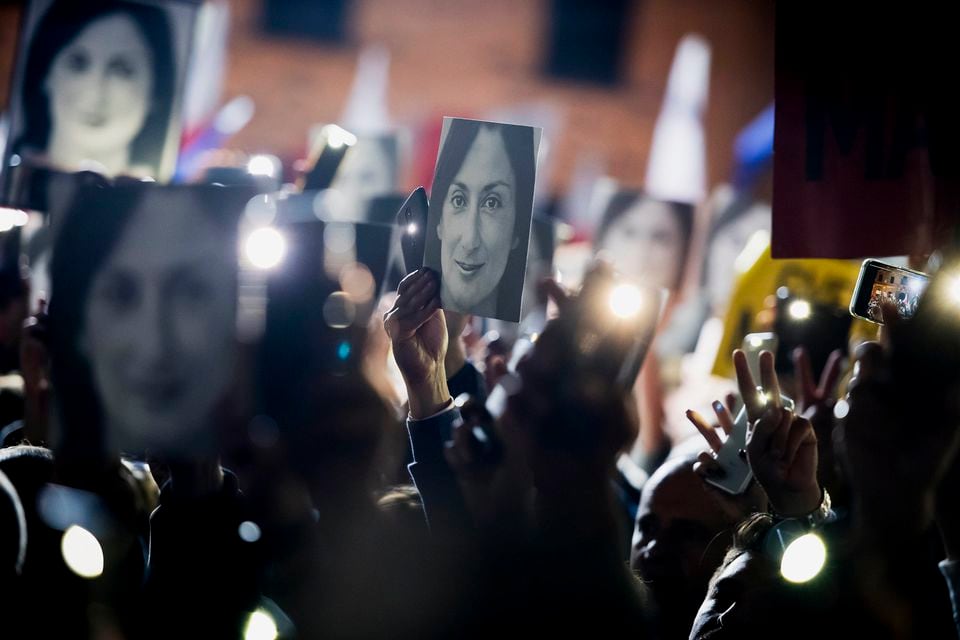 People held pictures of slain journalist Daphne Caruana Galizia as they protested in November 2019 outside the office of the Maltese Prime Minister Joseph Muscat, in Valletta, Malta. Prosecutors allege she was killed in a contract killing, paid for by a top Maltese businessman with government ties.Rene Rossignaud/Associated Press
People held pictures of slain journalist Daphne Caruana Galizia as they protested in November 2019 outside the office of the Maltese Prime Minister Joseph Muscat, in Valletta, Malta. Prosecutors allege she was killed in a contract killing, paid for by a top Maltese businessman with government ties.Rene Rossignaud/Associated Press
The deal officially fizzled after Muscat stepped down from office in January 2020, amid public outrage over the assassination of Daphne Caruana Galizia, a journalist who was first to report on alleged corruption within the hospital deal. Prosecutors allege she was killed in a contract killing, paid for by a top Maltese businessman with government ties.
Two years later, in 2022, Maltese authorities raided Muscatâs hillside villa and seized all his electronics as part of the probe into the fraudulent partnership. An incensed Muscat refused to provide them with the devicesâ passcodes, according to the inquiry.
A Maltese magistrate judge advised investigators to consult global experts in cracking electronics and extracting their data: the US Department of Homeland Security Cyber Crimes Center.
The Maltese investigators met with a US Department of Homeland Security special agent in the five-star Westin Dragonara hotel in the St. Julianâs neighborhood and handed over the bundle of devices. The exchange occurred a short walk from Stewardâs Malta outpost.
By the following spring, that office would be empty.
Some 490,000 residents live on the big island of Malta, packed into apartment buildings that tower over cramped city streets that make the country the ninth most densely populated in the world.
The remaining 40,000 live on the sister island of Gozo, where a bustling ferry terminal welcomes hundreds of tourists each day to explore rural beaches and snorkeling coves.
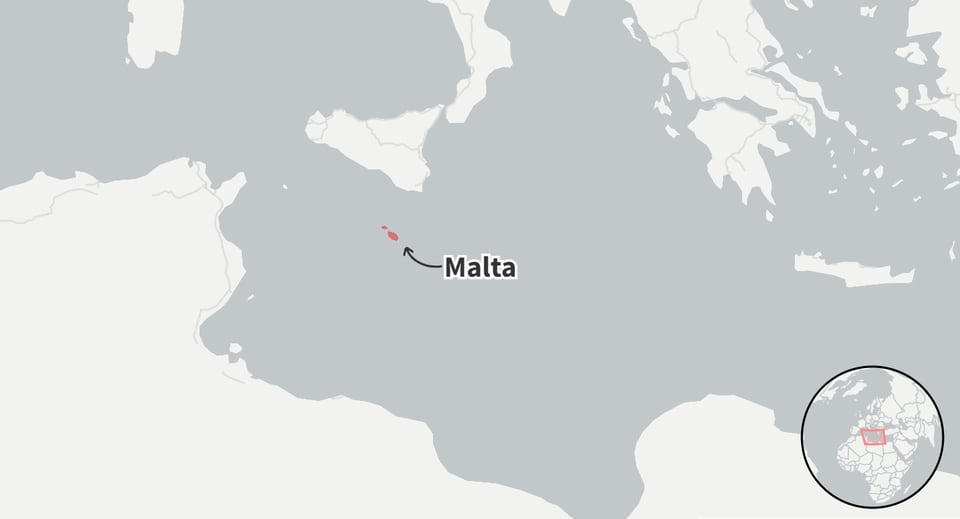 Malta is a Mediterranean country located south of Sicily.Christina Prignano
Malta is a Mediterranean country located south of Sicily.Christina Prignano
Just one hospital serves this population: Gozo General. It sits on the outskirts of the city of Victoria, looming over an undulating rocky landscape dotted with dense shrubs called salt trees, the occasional giant cross and cathedral, and an expanse of cerulean waters.
As part of the hospital deal, Steward was tasked with transforming this dilapidated hospital into a world-class medical facility, a credit to Malta and worthy of the Steward brand. The royal blue Steward logo was the first thing to be added. Next, according to local media reports, a billboard with a doctor making a heart-shaped symbol, accompanied by the message: âModern health care designed around you.â One helicopter was purchased and some temporary trailers installed, court documents show. And then, the renovations trickled to a halt.
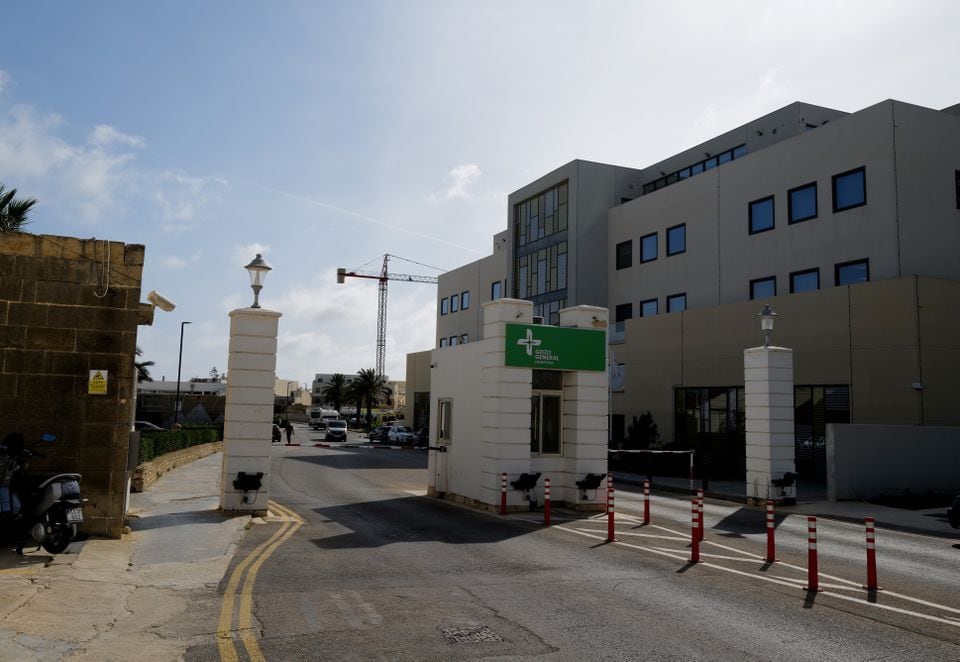 The entrance to Gozo General Hospital as seen on May 29, 2024. The sign was changed from Steward’s signature royal blue to green after a watershed court ruling struck down its contract to run the hospital, calling the arrangement âfraudulent.â Hanna Krueger
The entrance to Gozo General Hospital as seen on May 29, 2024. The sign was changed from Steward’s signature royal blue to green after a watershed court ruling struck down its contract to run the hospital, calling the arrangement âfraudulent.â Hanna Krueger
By 2023, Steward had received an estimated 400 million euros from the government of Malta with little to show for it, according to national audits. That February, a watershed court ruling struck down the deal once and for all, finding that it was âfraudulent.â The judge also rescinded Stewardâs 100 million euro escape clause.
âThe court had no doubt that [Steward] was well aware of the shortcomings of Vitals,â the judge said during the January 2023 hearing. In defense, it was expected that Steward would offer up witnesses to prove the contract had actually been fulfilled.
But all that Steward produced â more than six years after taking over the multibillion dollar deal â was a one-page affidavit and photos that boasted about the new helicopter and toilet renovations.
This court âis really perplexed by the poverty of the evidence Steward brought before this court,â the judge wrote, adding that it âprobably reflects the poverty of investment.â
A hallway off the main wing of Gozo General Hospital as seen on May 29, 2024. The hospital was one of three Steward Health Care was supposed to renovate and manage as part of a 4 billion euro hospital deal with the government of Malta. Hanna Krueger/Globe Staff
A visit to Gozo General Hospital last month found the aging stone edifice surrounded by a wire fence and yellow warning signs that read, âCaution: Falling debris!â The hallway off the hospitalâs main wing featured a shattered glass door and an unfinished ceiling with exposed wiring, dangling fire alarms, and daylight poking through.
A big white tent in the doctor parking lot shaded a mobile MRI unit. The government purchased the machine as a stopgap measure after taking back the hospital from Steward in 2023. A parliamentary question earlier this year revealed that almost 16,000 people in Malta were waiting for an MRI, double the number reported six months earlier.
The unprecedented criminal trial in Malta will likely last years. No prime minister has ever faced corruption charges in the nationâs history. Many doubt the court will actually deliver justice, given the dysfunction and corruption rife in Maltaâs judicial system.
âWithin the public here, there is a hope at least that if our courts fail us, which they very well might, potentially the long arm of the law of the United States might reach as far as here. After all, bribery is a two-way crime,â a Maltese bank chairman told the Globe. Fearful of speaking out against Muscat, he asked to go unnamed.
Two men with direct connections to Steward â company legal counsel David Melli of Malta and Asad Ali, the son of Steward consultant Shaukut Ali â have appeared in court and have been formally charged with a slew of corruption and money laundering charges.
Steward representatives declined to say if Ernst or de la Torre will travel to Malta to be formally charged in court.
Hanna Krueger can be reached at hanna.krueger@globe.com. Follow her @hannaskrueger.

